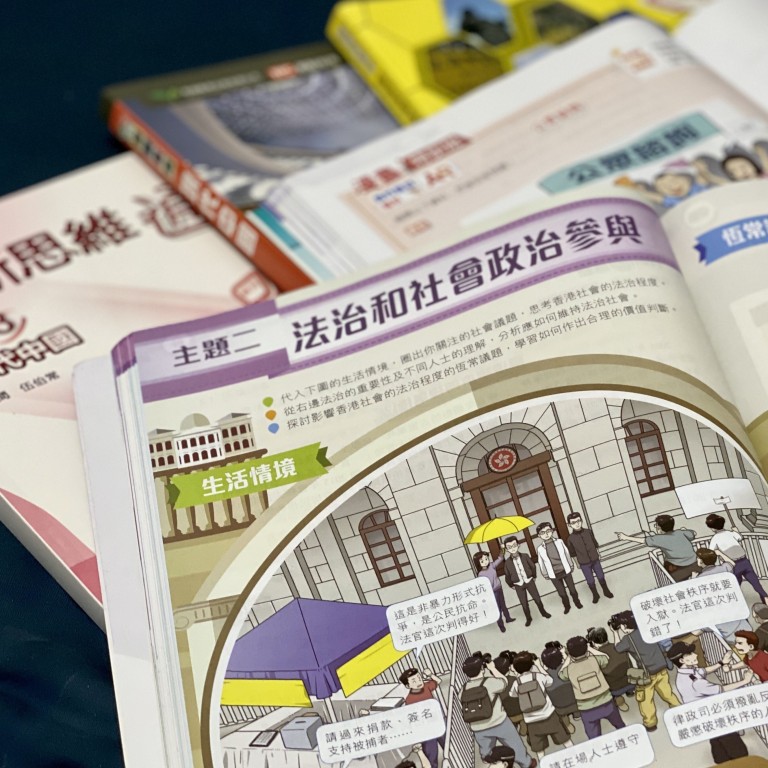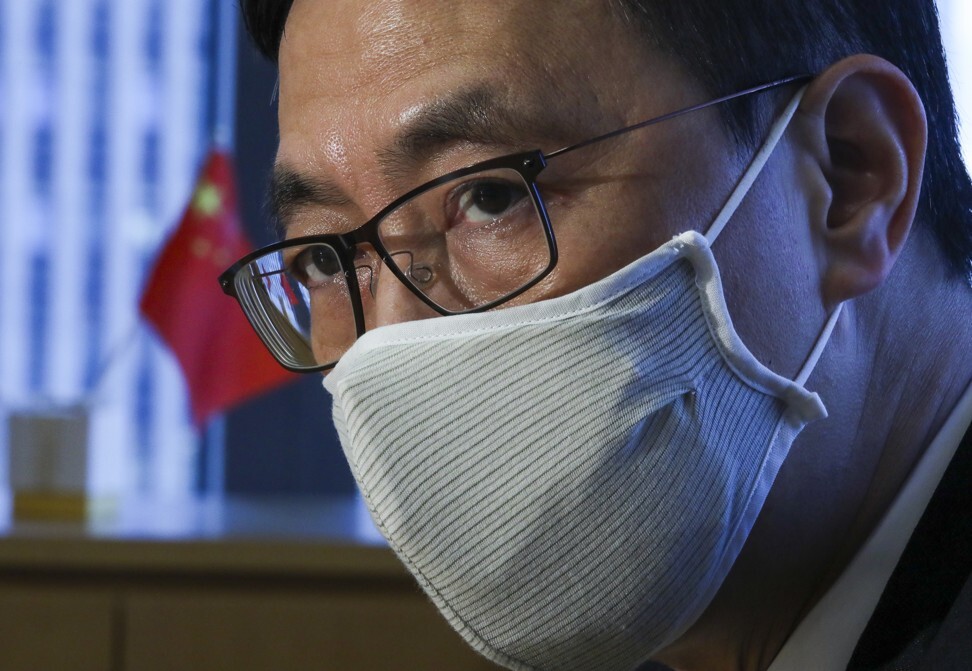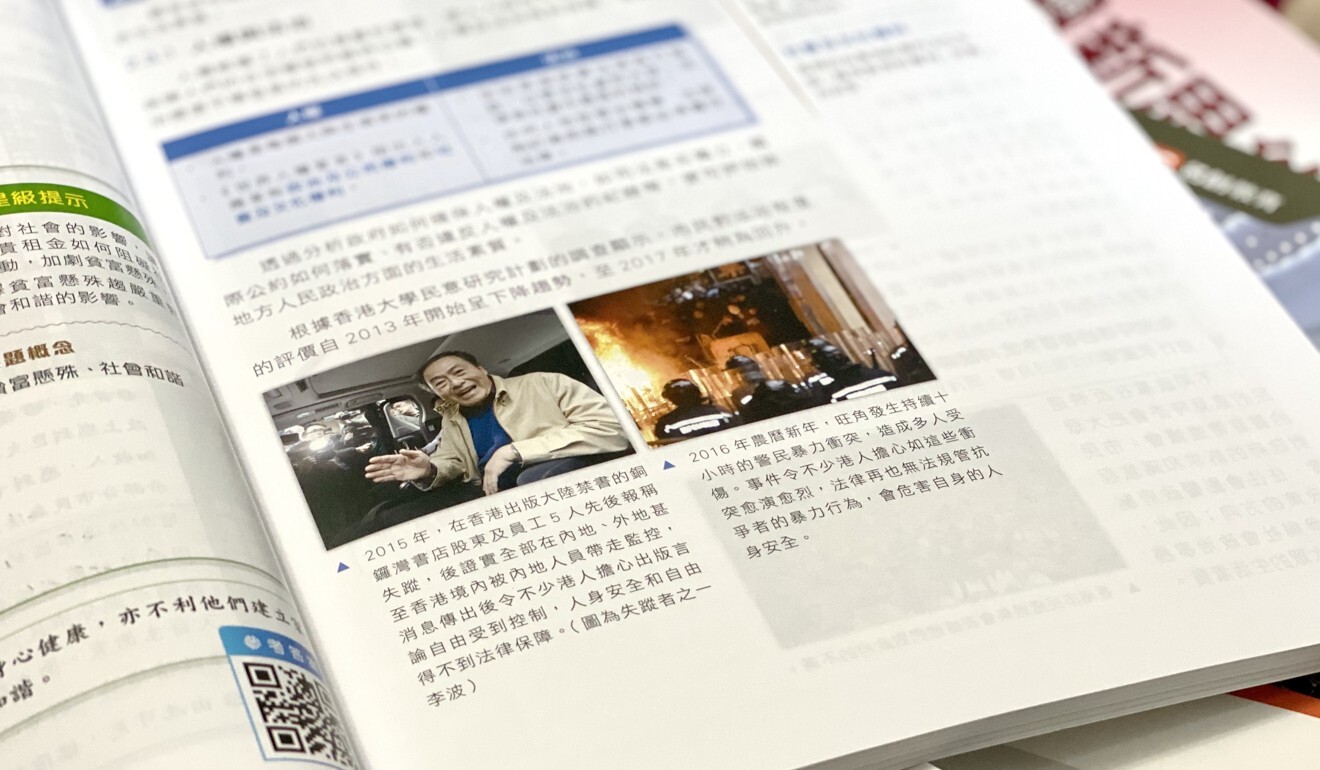
Hong Kong liberal studies: content on national security, lawfulness, patriotism to be expanded under coming revamp
- More details on proposals for new curriculum have been laid out in consultation paper sent to schools, with current six modules trimmed to three
- Another focus recommended is constitutional relationship between city and mainland China
New names for the mandatory subject – which would be amended in September at the earliest – were also raised in the 48-page document for secondary schools, including “citizenship and nation”, “nationals and society” and “social studies”.
Secretary for Education Kevin Yeung Yun-hung had announced the wide-ranging reforms in November, including turning liberal studies into a simple pass-or-fail subject, having its syllabus trimmed and all textbooks subject to vetting.
Students will also be required to visit mainland China as part of their studies.
But educators who spoke to the Post said despite the proposed framework, there were still many unanswered questions, such as how teachers could adapt to the new curriculum and whether any existing topics would be banned after the changes.

Liberal studies, first introduced in 2009 as one of four compulsory subjects for senior secondary students under a curriculum reform, was aimed at enhancing young people’s awareness of social issues and developing their critical thinking skills.
It has been plagued by controversy in recent years with pro-Beijing figures blaming it for the escalating violence from young protesters in 2019’s social unrest, while others have deemed the teaching materials to be biased.
What is liberal studies in Hong Kong and why is it controversial?
Its six modules under the existing syllabus include personal development and interpersonal relationships, Hong Kong today, modern China, globalisation, public health, as well as energy technology and the environment.
The Hong Kong section covers topics related to sociopolitical participation and local identity, while some textbooks on the modern China module mention the mainland’s legal system and bring up the Tiananmen Square crackdown in 1989.
We hope that under the [revamp], students can have a correct understanding of the country, national identity as well as the one country, two systems framework
Under proposals by the Education Bureau, the six modules will be trimmed to three – “Hong Kong under One Country, Two Systems; Our Country since Reform and Opening-up; and Interconnectedness and Interdependence of the Contemporary World”.
According to the document sent to schools on Tuesday, the focus of learning proposed in the new syllabus under the Hong Kong theme will include the significance of safeguarding national security, upholding and abiding by the rule of law, as well as the fundamental rights and duties of Hong Kong residents.
One topic highlighted will also be the constitutional relationship between Hong Kong and mainland China. On this, the document stated that “China has indisputable sovereignty and jurisdiction over Hong Kong”.
Publishers make changes to Liberal Studies textbooks after voluntary review
Under the section on mainland China, the concept of Chinese nationality, the national symbols including the national flag, emblem and anthem, as well as achievements of the nation in different areas in recent years such as high-end technologies and poverty alleviation are some of the suggested focal points in the new curriculum.
While the proposed syllabus is still aimed at developing pupils’ critical thinking skills and fostering independent thinkers, some new goals include helping students inherit Chinese culture and heritage in a pluralistic society, while deepening their understanding of the identity of individuals with Chinese nationality.

Consultation with school representatives will last from Tuesday to March 2, including briefing sessions and a survey distributed to all secondary schools.
Professor Lau Chi-pang, chairman of a committee under the curriculum development council in charge of the reform details of the new liberal studies subject, said members would discuss the consultation results before putting out a refined framework for the subject, which could be ready in April at the earliest.
The 12-member committee, which has held two meetings so far, would also be looking into the course structure as well as examination and assessment details.
“We hope that under the [revamp], students can have a correct understanding of the country, national identity as well as the one country, two systems framework,” Lau said.
The proposed changes seem to want to emphasise only the more positive sides
But veteran liberal studies teacher Tin Fong-chak, of the Professional Teachers’ Union, expressed worry the proposed changes were aimed at “indoctrinating pupils and prompting patriotism”.
“It has become a different subject. For instance, in the existing modern China module, we would touch on topics including poverty and environmental pollution. But the proposed changes seem to want to emphasise only the more positive sides,” he said.
Lau Kam-fai, president of the Hong Kong Liberal Studies Teachers‘ Association, said many questions remained unanswered despite the roll-out of the proposed framework.
“Teachers are concerned about how lessons under the new curriculum work, whether part of the existing textbooks can still be used, and if there will be sufficient training before implementation,” Lau said. “And what if students raise questions during class? How should teachers respond? Guidelines may be needed.”
He urged the government and the committee to release more concrete details as soon as possible, so teachers could better prepare pupils.

